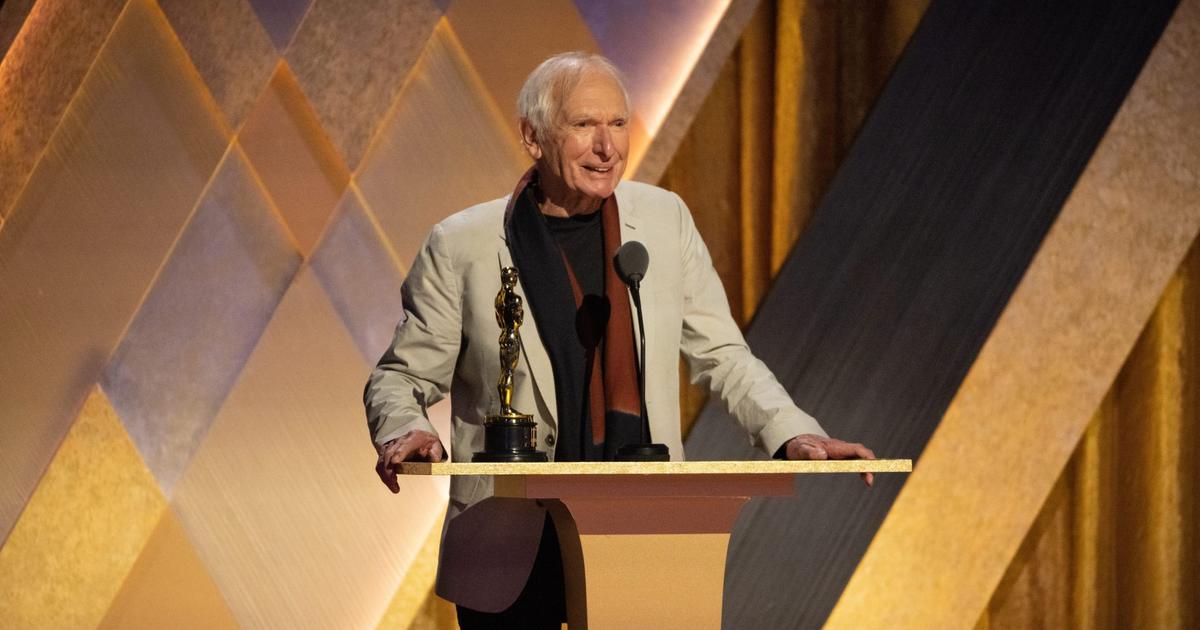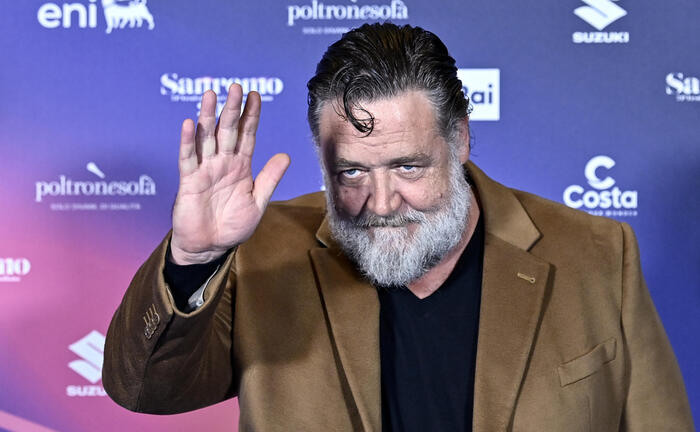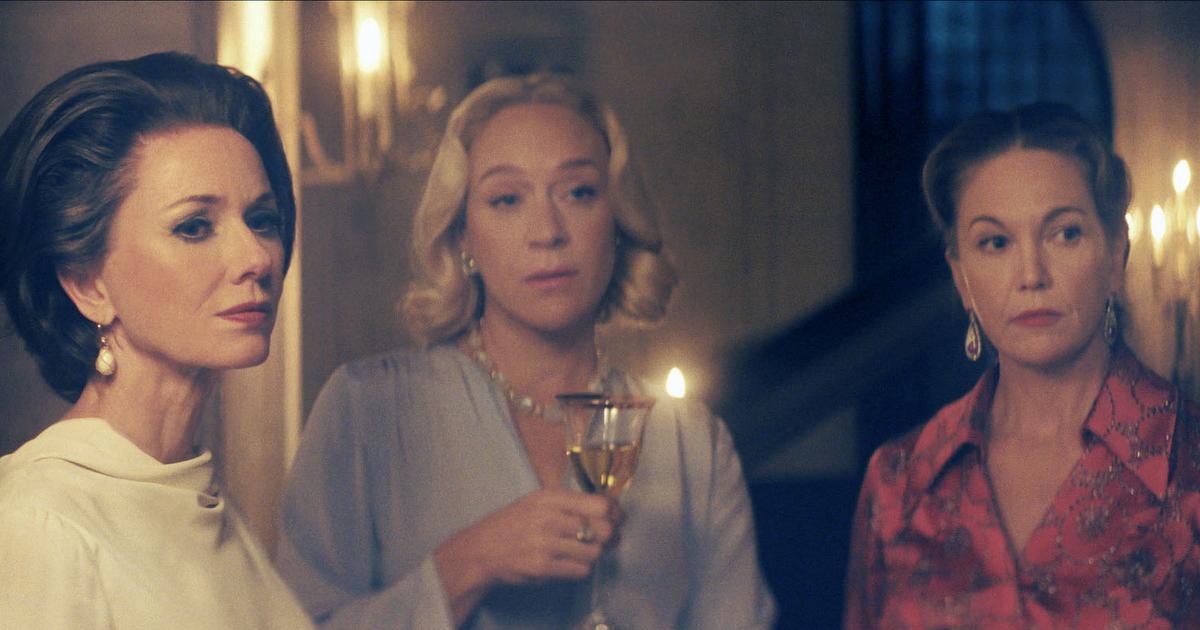It took viewers to one of the great battles of World War I, to the bridge of the frigate
HMS Surprise
during the Napoleonic Wars, to an
Amish American village
and a forbidden love, or a huge television set in which a naive lived without discovering the trompe l'oeil.
He made the public accompany a group of prisoners on their escape in 1941 from a Siberian gulag to India through the Himalayas, to feel like one more student in a strict boarding school to which a different teacher arrives, or to be part of a family who travels to South America to build his own utopia.
Responsible for all these trips is the Australian filmmaker Peter Weir, who will receive an honorary Oscar on November 19, after having been a candidate for the Hollywood Academy Award six times, and never having won it.
More information
"Every day of this shoot was a triumph"
Weir (Sydney, 77 years old) has only directed 12 feature films, one medium-length film and a handful of shorts.
Half a dozen of his features were made in the 1980s, in what would be his most prolific time in life.
Although if there is something about Weir's cinema, which he has not directed since 2010, it is that it has never lowered its quality.
Nor his eclecticism.
Nor his ability to engage the public: his films have been as author as blockbusters.
And yet, back to the beginning: he has only directed 12. “I need to feel consumed by the story.
Let it consume me”, he assured in Sitges in 2018. “You must be empty and bored to be able to create”, he assured.
Like many other artists, his work draws from his childhood, a time in his case happy and governed by his prolific imagination: “It was a pre-television childhood, I lived climbing trees or fishing with a harpoon in Sydney Harbor.
He was the hero of my own imaginations, all fueled by books and movies."
Until, at the age of 12, in 1956, a television arrived at his house: “Every Saturday afternoon it was filled with the sound of gunfire and the war cries of the Indians.
All that time I didn't know that cowboy movies were a genre, and neither did my other favorites, the horror ones.
After studying Law and Art at the University of Sydney, Weir began meeting other university students who were fond of cinema and with whom he would form Ubu Films in the mid-1960s, a group of creators close to film experimentation: there, together with Weir, there was Bruce Beresford (
Conducting Miss Daisy
), Phillip Noyce (
The Bone Collector
) or producer Matt Carroll.
In Weir's case, moreover, to gain money and experience, he began to work on various television networks, where he would direct short films, documentaries or Christmas specials.
And so his opportunity came:
The Cars That Devoured Paris,
in 1974, a low-budget black comedy starring the inhabitants of a small town —the Paris of the title— who are dedicated to causing car accidents and living off what their occupants carry.
The film was successful enough on the Australian drive-in circuit to allow him to rise through the ranks, have more money, and film
Picnic at Hanging Rock .
(1975), in which he recounts the disappearance on a field trip on Valentine's Day in 1900 of a group of girls from an exclusive all-girls college.
“I loved the book, the fact that there was no solution to the mystery.
That was both its attraction and its danger.
Delivering an unsolvable mystery story has always been a challenge.
That's why I made it dreamy, hallucinatory, trying to get to a point where the audience didn't want the atmosphere to be broken by a conventional ending," Weir said in 2018.
Entrance to the Cannes Festival Palace with the tribute poster to 'The Truman Show' on the facade, last May. GUILLAUME HORCAJUELO (EFE)
Those first titles serve as a guide to what will be a constant in his career: protagonists who face vital crises after finding themselves separated, even isolated from society.
Hence the complexity of its characters, never good or bad, whatever the world in which their plots take place.
With Mel Gibson he did
Gallipoli
and
The Year We Lived Dangerously;
with Harrison Ford,
Sole Witness
(beginning of his American filmography) and
The Mosquito Coast;
with Robin Williams, whom he met one day sitting on the beach in front of his house in Sydney,
Dead Poets Club:
in the eighties he did not stop working.
“Nature evokes our feelings.
I am interested in nature as drama.
There is nothing like a forest.
There is nothing like a desert.
And each one of those landscapes explains who we are”, she told in Madrid in 2010, about this proliferation of dramas in very different ecosystems.
Even in his gentler films, like the romantic comedy
Marriage of Convenience
(1990), Weir took risks: in this case, casting Gérard Depardieu in his first English-language role and pairing him with Andie McDowell.
It was a blockbuster, although it did not have a good critical reception.
Quite the opposite of
Without fear of life
(1993).
With
The Truman Show
(1998) resynchronized the success between the public, the awards and the critics.
About it, in the Catalan contest, he explained: “It was pure fantasy, speculative fiction that seemed like it could never become reality.
It fascinates me to see that the film is still alive so many years later, because when we shot it we made it to be consumed at that time.
Technology would end up making prophetic that title that this year the Cannes festival has honored on its poster.
In the 21st century, Weir has only directed two films:
Master and Commander: The Other Side of the World
(2003) and
Camino a la libertad
(2010).
They are films for an adult audience, just the one that has been moving away from the big screen.
The Australian failed to reconnect with large audiences.
At the presentation of the last one in Madrid, premonitory, the filmmaker explained: “I only know that I cannot lose my love for cinema, and that is the most complicated part.
I don't want to lose the fascination for what I do.
I need to be totally connected with my work.
[...] What I want is for each new film to be like the first.
And if for this reason I am condemned to do less, then I will do even less”.
Until today, this has been the case.
50% off
Exclusive content for subscribers
read without limits
subscribe
I'm already a subscriber















